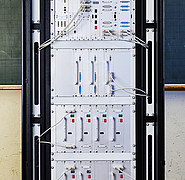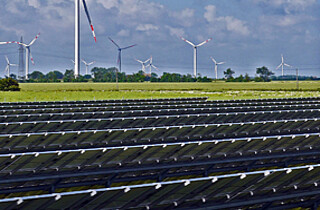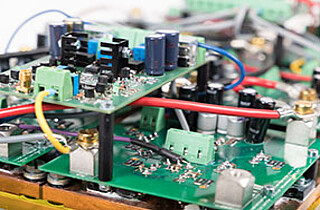Three-phase hybrid converter as efficient voltage source
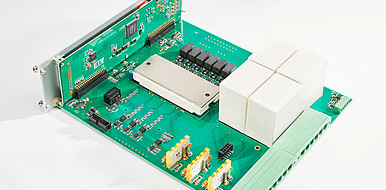
Energy transformation and electro mobility require the development of new grid structures, the adaptation of the electrical energy supply as well as a stronger coupling of different energy sources. As a result, there is an increasing demand for power electronic converters that allow the precise adjustment of voltage and current for different applications. Previous options for feed-in, distribution and use of electrical energy have disadvantages due to their principle: Transformers are heavy and limited to the feeding frequency, conventional converters usually cannot deliver sufficiently high voltage quality with high power density at the same time, and linear amplifiers only cover low performance and voltage ranges. As a result, the high requirements for grid-friendly converters and precise test converters can only be met by conventional technologies with high costs and lower power densities. At KIT's Institute of Electrical Engineering (ETI), scientists have developed a more powerful hybrid converter based on a novel circuit concept. In this case, a common converter is decoupled from a multi-level converter and both units are combined into a three-phase hybrid converter via a separate coupling inductance. The powerful frequency converter, which is characterized by low costs and high power density, takes over the active power conversion. This is coupled to a high-level multi-level converter with high voltage quality and low rated power. A high degree of modularity is given since all components are based on identically constructed units. This combination results in a hybrid converter with high voltage quality, very good scalability and previously unrivalled power density. The new frequency converter can be used for low and medium voltage applications, is characterized by frequency-independent filter behavior as well as smaller size and costs compared to conventional converter technologies. The hybrid converter can be used as a mains and drive converter but also as a low-distortion voltage source for testing purposes. KIT is looking for companies to license the topology, but also for application-oriented research projects or test assignments at the institute.
Images close open
Your contact person for this offer
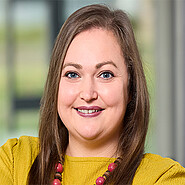
Innovation Manager Mobility and Information Karlsruhe Institute of Technology (KIT)
Innovation and Relations Management (IRM) Phone: +49 721 608-25335
Email: julia.rast@kit.edu

